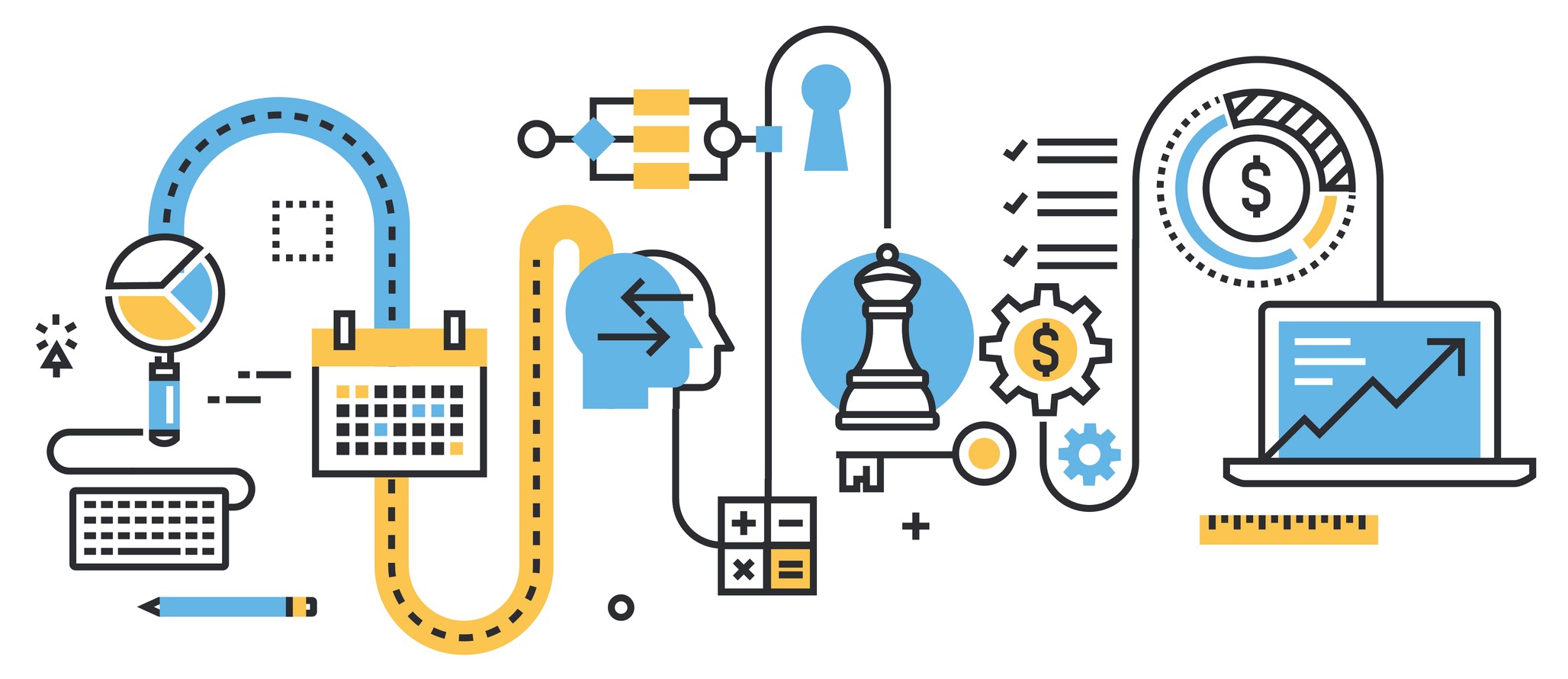Dealership Management System; Key Benefits and Features of DMS

From managing sprawling inventories to delivering exceptional customer service, the need for efficiency has never been greater. This is where a Dealership Management System (DMS) steps in—not just as a tool but as a transformative solution to help dealerships thrive. A top-tier DMS doesn’t just simplify operations; it connects the dots between your sales team, service department, and back-office functions. In the USA, where consumer expectations and market competition are high, a DMS integrated with powerful APIs like CDK, Fortellis, Reynolds & Reynolds, Vauto, and Dealertrack ensures you’re always ahead of the curve.
What is a Dealership Management System?
A Dealership Management System (DMS) is a centralized software platform that streamlines and integrates critical operations of a dealership. From sales and inventory management to accounting and customer relationship management, a DMS helps businesses improve efficiency, reduce manual errors, and deliver superior customer experiences.
Who is a DMS for?
A DMS is designed for dealerships across various industries, including:
- Automotive dealerships
- Agricultural equipment dealerships
- Construction machinery dealerships
- Motorcycle and powersports dealerships
- Marine and recreational vehicle dealerships
Whether you run a single-location dealership or a multi-branch enterprise, a DMS can help you manage day-to-day operations effectively and scale your business.
Why Modern Dealerships Need a DMS
Imagine juggling hundreds of vehicle transactions while managing parts inventories, customer communications, and service appointments. Without a streamlined system, it’s chaos. A DMS centralizes these functions, providing dealerships with the tools to increase productivity, reduce errors, and enhance customer satisfaction.
Let’s explore the key features of a DMS and how integrating APIs like CDK and Fortellis can elevate your dealership’s operations.
-
Vehicle Inventory Management
with Precision
Keeping track of vehicle and parts inventories is a core challenge for dealerships. With a DMS, you can manage inventory in real-time, ensuring that your stock aligns with customer demand. For example, Vauto’s inventory management API allows dealerships to assess market trends and price vehicles competitively. By leveraging data, dealerships avoid overstocking or missing sales opportunities. -
Smarter Customer Relationship
Management (CRM)
Customer relationships are at the heart of any successful dealership. A DMS integrated with APIs like DealerSocket CRM helps you engage with customers through personalized campaigns, track their purchase history, and send reminders for service appointments. This enhances loyalty and boosts repeat business. -
Simplified Sales and Financing
for Vehicle Trade
Navigating financing options can be a hassle for both dealerships and customers. Integration with tools like Dealertrack’s credit application network streamlines the process. Your sales team can quickly offer financing solutions, run credit checks, and finalize deals—all within the DMS. This not only saves time but also creates a seamless buying experience. -
Service Advisory Department
Excellence
Your service department is a critical profit center. A DMS paired with APIs like CDK Service Edge ensures appointments are scheduled efficiently, repair jobs are tracked in detail, and customers receive timely updates. For instance, customers can book their service appointments online, and the system assigns tasks to technicians based on skill and availability. -
Data-Driven Decision Making
with Pace Reporting
Success in the automotive industry relies on insights. Modern DMS solutions offer built-in analytics, but integrating APIs like Fortellis Insights provides an even deeper understanding of market trends, sales performance, and operational bottlenecks. Real-time reporting empowers dealerships to make informed decisions and stay competitive. -
Seamless Digital Integration
with CDK Global and
Fortellis
In a connected world, no dealership operates in isolation. A DMS that integrates with Fortellis APIs allows for seamless connections with online marketplaces, accounting software, and even vehicle manufacturers. This ensures you’re always aligned with industry standards and can offer customers a connected, digital-first experience.
The Key Benefits of Using a Dealership Management System (DMS)
A Dealership Management System (DMS) brings it all together under one roof, transforming how dealerships function and unlocking opportunities for growth. Here are the top benefits of using a DMS:
-
Centralized Operations:
A DMS acts as the central hub for your dealership, streamlining workflows across departments. Whether it’s sales, service, or finance, every team can access real-time data in one unified platform. This eliminates silos, reduces miscommunication, and ensures seamless collaboration. -
Improved Customer
Experience:
With CRM integration, a DMS personalizes the customer journey. Dealerships can track customer preferences, service histories, and buying patterns to offer tailored solutions. Automated service reminders, follow-ups, and targeted marketing campaigns ensure customers feel valued, enhancing loyalty and retention. -
Enhanced Inventory
Management:
Maintaining the right inventory balance is critical. A DMS provides real-time visibility into vehicle and parts inventories, helping you avoid overstocking or shortages. With predictive tools and integrations like Vauto, dealerships can align inventory with market demand, ensuring profitability. -
Increased Efficiency:
Manual processes can slow down operations and increase errors. A DMS automates key tasks such as appointment scheduling, invoice generation, and loan processing. This not only saves time but also frees up staff to focus on strategic activities that drive growth. -
Seamless Sales and
Financing:
From test drives to finalizing financing, a DMS simplifies the sales process. Integration with tools like Dealertrack enables faster credit approvals, lease management, and deal closures. Customers enjoy a hassle-free buying experience, and dealerships can process transactions more efficiently. -
Robust Analytics and
Reporting:
Data is the backbone of decision-making. A DMS provides real-time analytics and detailed reports on sales, inventory, service performance, and customer behavior. These insights enable dealerships to identify trends, set achievable goals, and make informed decisions to stay competitive. -
Regulatory Compliance and
Security:
Compliance with federal and state regulations is non-negotiable in the automotive industry. A DMS ensures accurate record-keeping, tax calculations, and adherence to industry standards. Additionally, modern systems come with robust cybersecurity measures to protect sensitive customer and business data. -
Cost Savings and
Profitability:
By automating tasks and optimizing operations, a DMS significantly reduces operational costs. From lower carrying costs for inventory to increased service department profitability, every aspect of the dealership benefits financially. -
Scalability and
Adaptability:
As your dealership grows, a DMS can grow with it. Whether expanding into new locations or adding new services, a scalable DMS adapts to your evolving needs without requiring major overhauls. -
Competitive Advantage:
In a market where customer expectations are constantly rising, a dealership with a robust DMS stands out. By offering better service, faster response times, and a seamless buying experience, you can stay ahead of competitors.

How to Choose the Right DMS For Your Business
Selecting the right DMS involves evaluating several factors to ensure it meets your dealership’s specific needs. Here’s what to consider:
-
Industry-Specific
Features:
Choose a DMS designed for your industry to address unique operational requirements. -
Ease of Use:
Opt for a user-friendly system that minimizes the learning curve for your team. -
Integration
Capabilities:
Ensure the DMS integrates seamlessly with existing systems and third-party applications. -
Scalability:
Pick a solution that can grow with your business, accommodating new locations, users, and services. -
Vendor Support:
Prioritize vendors that offer reliable customer support, training, and regular updates.
When Should You Buy a DMS?
Investing in a DMS is crucial when:
- Your current systems are outdated and inefficient.
- You’re experiencing growth and need scalable solutions.
- Manual processes are leading to errors and inefficiencies.
- You want to enhance customer experience and retention.
Is Your Dealership Satisfied with Its Current Solution?
-
Evaluate Your Current
Operations:
What areas could be improved? Is the dealership meeting its KPIs with its current software? What are the dealership’s short-term and long-term goals? If your dealership plans to expand, a scalable DMS that updates inventory across locations is essential. Recognizing your dealership’s unique goals will help determine whether implementing a DMS is the right step. -
Determine Your Needs and
Wants:
Define what your dealership absolutely requires versus additional features you might want:
Needs: Non-negotiable aspects essential for operations.
Wants: Flexible features that could be implemented later.
Understanding these priorities will streamline your DMS selection process. -
Narrow Down Your DMS
Options:
Research and create a list of DMS options that meet your requirements. Seek advice from peers and professionals to gain insights into different systems. Compile a list to compare features, costs, and scalability. -
Consider Upfront Costs and
Hardware Needs:
Factor in costs for software, employee training, and hardware upgrades. Evaluate your dealership’s current hardware to determine compatibility with new DMS solutions. -
Plan for Expansion:
Ensure the DMS provider has experience supporting businesses during growth. A robust DMS should handle multi-location operations seamlessly.
Conclusion
A Dealership Management System is more than just software; it’s a strategic investment in your dealership’s success. By streamlining operations, enhancing customer satisfaction, and providing real-time insights, a DMS empowers you to stay ahead in a competitive market. Evaluate your needs, compare options, and choose a DMS that aligns with your business goals. Start your journey toward operational excellence today!